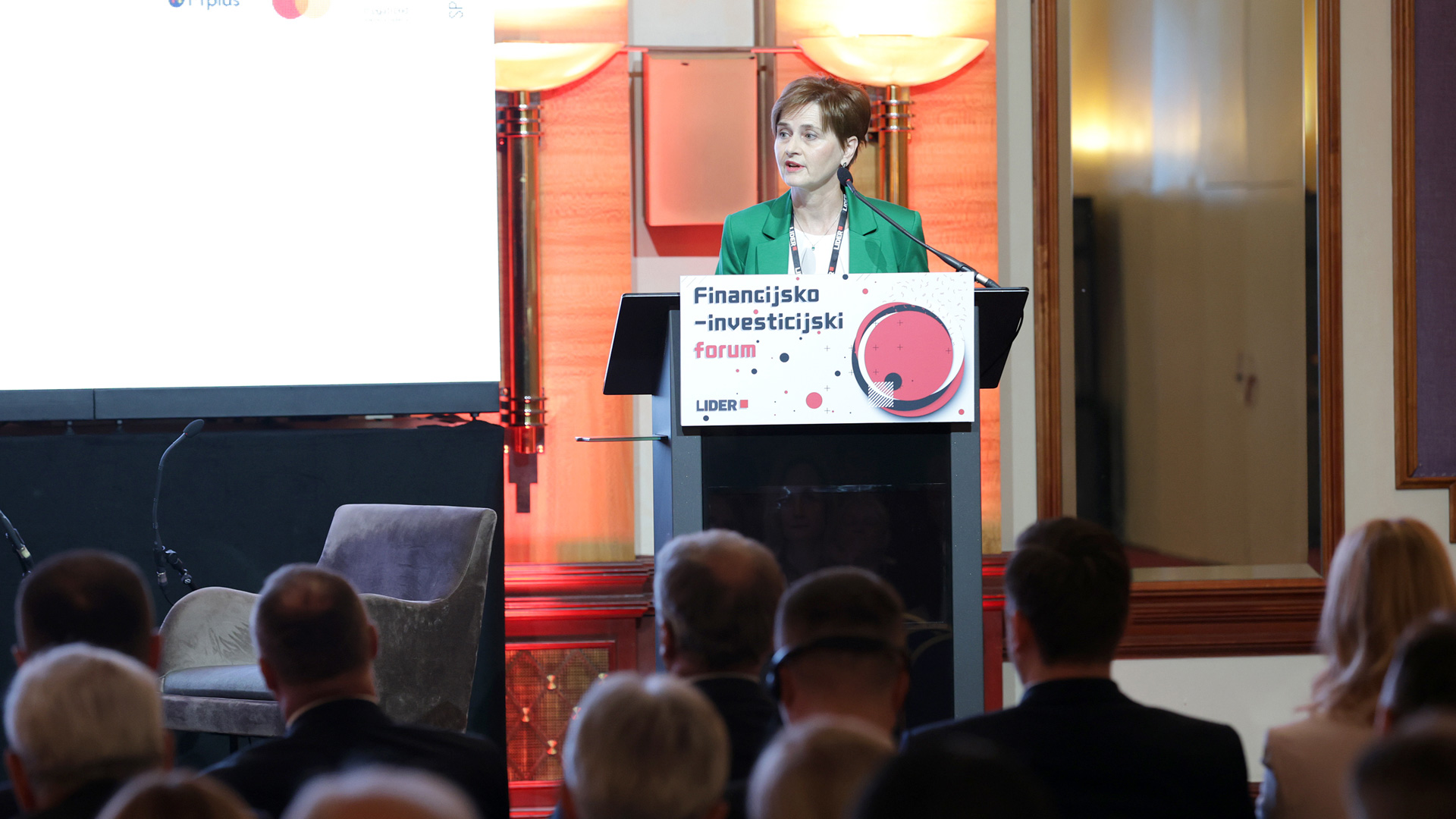
Fotograf: Ratko Mavar
"Investing in a sustainable future: needs and opportunities" is the title of the presentation that the Deputy Governor of the Croatian National Bank Sandra Švaljek held today at the Financial Investment Forum organized by Lider Media.
On that occasion, the Deputy Governor stressed, inter alia, the importance of the financial sector’s contribution to the climate transition. According to her, climate and environmental changes are already being taken into account in business and financial decisions, and massive public and private investments in the climate transition are expected in the coming decades. In Croatia, particularly large investments are expected to be made in the field of industry due to the transition to renewable energy sources, then in the field of transport, and in the building sector. There are many reasons why climate change could encourage companies to invest in reducing their dependence on fossil fuels and energy efficiency, said the Deputy Governor, with the development of technologies that enable emissions to be curbed and installation costs to be reduced contributing to the company's propensity for such investments. Banks also have many reasons to engage in financing the climate transition, with the main reasons being related to identifying the opportunities of the climate transition, avoiding the risks they might face by lending to certain clients, pressure from stakeholders, and legal obligations. Regarding the existing climate and environmental risk in banks' portfolios, she mentioned that CNB estimates show that the exposure of banks in the Republic of Croatia to transitional climate risk amounts to about 25% of total exposures, while about 8% of bank loans are exposed to physical climate risk.
On that occasion, the Deputy Governor stated that the experience with the energy shock in 2022 had warned companies about the importance of reducing their dependence on fossil fuel energy and the need to strengthen their resilience to external shocks. She also pointed out that the results of the Survey on the financing conditions of small and medium-sized enterprises showed that enterprises in Croatia, especially medium-sized and large enterprises, had significant needs for external financing of investments in increasing energy efficiency, the transition to energy from renewable sources and the introduction of environmentally sustainable products and services.
In recent years, good preconditions have been created for financing the green transition within the banking sector, said Sandra Švaljek, from the development of an appropriate regulatory framework such as the new requirements of the Regulation on prudential requirements for credit institutions and investment firms (CRR3) and the Directive on access to the activity of credit institutions and the prudential supervision of credit institutions and investment firms (CRD6) and the Corporate Sustainability Reporting Directive (CSRD), through the publication of supervisory expectations and the development of supervisory practices, to the improvement of banks' internal processes and the strengthening of their capacity to manage climate-related and environmental risks and the creation of databases.
The Deputy Governor pointed out that there were still challenges in involving banks more closely in financing the transition to a low-carbon economy, with these challenges being expressed both on the supply and demand side, which made it necessary to develop mutual trust and establish lasting cooperation between entrepreneurs and banks to finance investments in climate- and environmentally sustainable projects.
